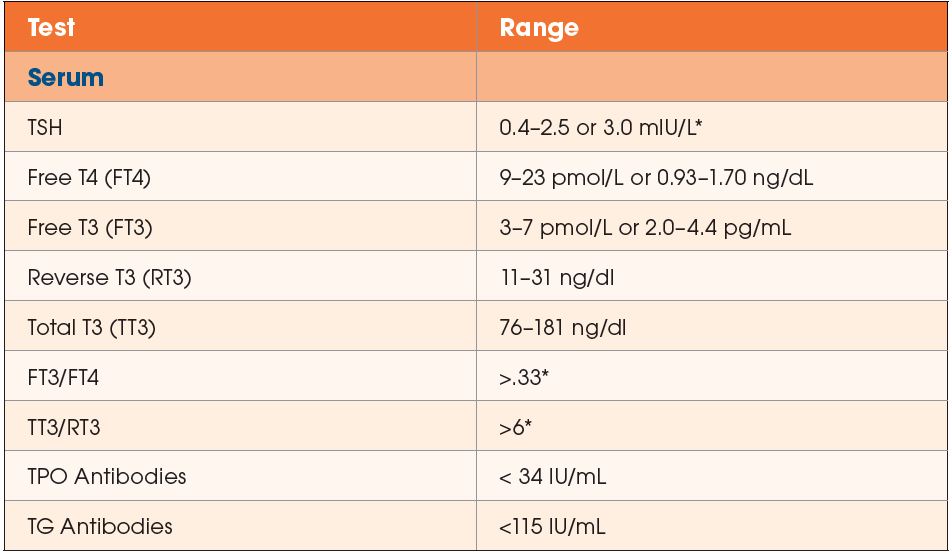
Do you have a good team to support your thyroid? If you know that you have thyroid dysfunction, it is important to address the “teammates” that tend to go along with thyroid problems. These teammates are needed for both thyroid hormone production and utilization. Just because you’re taking a thyroid hormone replacement doesn’t mean that your body is using it!
The thyroid gland is not isolated from the body – it is one of the master glands, and works synergistically with other organs and elements in the blood. For true symptom improvement, it’s important to address the foundational elements that are required to survive: good quality food, good digestion and assimilation of nutrients, good sleep, movement/exercise, address and manage stress, and community involvement. These elements are the responsibility of the the patient. For the most part, these are not measurable in a lab. However, there are some basic, indirect ways of looking at these through bloodwork.
- First, know your thyroid function tests – TSH, free T3, free T4, and TPO antibodies. If some of these are normal, and others are not, you may not have the right type of thyroid replacement for your body. For example, if your TSH is between 0.5 and 2.0, your free T4 is normal, but your free T3 is low, you may be a “poor-converter” (which requires different thyroid replacements, or can be from high stress that is “stealing” your free T3).
- Second, vitamins and minerals (aka the “ingredients” needed to create thyroid hormones). Of particular importance are vitamin B12, vitamin D, ferritin (i.e. “iron storage” marker), zinc, and selenium. If these are out of the “optimal range”, you may need to add or remove foods/supplements that are contributing to the imbalances. You never want to start taking a supplement just because someone on the internet (or even a friend) says you need it – you need to know your own personal levels!
- Third, other hormones. These include fasting insulin (which controls blood glucose levels, so you should look at these too – you can have diabetes or prediabetes AND have a thyroid condition!), cortisol (blood levels which can suggest problems with your quality of sleep and your stress-managing adrenal glands), and sex hormones (testosterone, estrogen, and progesterone).
All the above, especially hormones, are affected by stress, so even if you think you are not affected by stress or are creating stress in the body (e.g. exercising too much or too hard), you should see what your body isn’t able to tell you by looking at your blood work! If you’d like to be tested, you can order labs here.
Thyoid Lab reference ranges as cited from the Institute for Functional Medicine:
Note—This is not meant to be an all-inclusive list of laboratory tests used to diagnose or treat a condition. Ranges vary by lab, specimen type, and technology. The ranges here provide examples. Consult the lab company ranges for normal ranges based on methodology. Ideal functional ranges may need to be individualized.

*Noted ranges based on the following citations:
American Association of Clinical Endocrinologists medical guidelines for clinical practice for the evaluation and treatment of hyperthyroidism and hypothyroidism.
Endocr Pract, Nov- Dec. 2002. 8(6): p. 457-69.
Andersen, S., et al., Narrow individual variations in serum T(4) and T(3) in normal subjects: a clue to the understanding of subclinical thyroid disease. J Clin Endocrinol
Metab, 2002. 87(3): 1068-72.
Baloch, Z. et al., Laboratory medicine practice guidelines. Laboratory support for the diagnosis and monitoring of thyroid disease. Thyroid, 2003.13(1): 3-126.
Canaris, G.J., et al. The Colorado thyroid disease prevalence study. Arch Intern Med, 2000. 160(4): 526-34.
Surks, M.I., G. Goswami, and G.H. Daniels. The thyrotropin reference range should remain unchanged. J Clin Endocrinol Metab, 2005. 90(9): 5489-96.
Wartofsky, L. and R.A. Dickey. The evidence for a narrower thyrotropin reference range is compelling. J Clin Endocrinol Metab, 2005. 90(9): 5483-8.
References:
Assessing free T3 and free T4 in evaluation of thyroid function: https://www.ncbi.nlm.nih.gov/pubmed/12915350
Hypothalamic thyroid hormone feedback in health and disease – pathophysiology: https://www.ncbi.nlm.nih.gov/pubmed/16876576
Thyroid and insulin resistance: https://www.ncbi.nlm.nih.gov/pmc/articles/PMC3356957/
Effects of gut microbiome on thyroid: https://www.sciencedirect.com/science/article/pii/S0303720717300758
MAY
2018

About the Author:
Meg McElroy is a PA with over 20 years of experience in the art and practice of functional medicine. She believes the first step in getting better is to embrace your current health situation (rather than dwelling in the past!), and recognize that health is ultimately impacted by our daily habits and choices. Persist and stay patient, give grace to those that are trying to help you on your journey, and remember that health is a journey, not a destination!